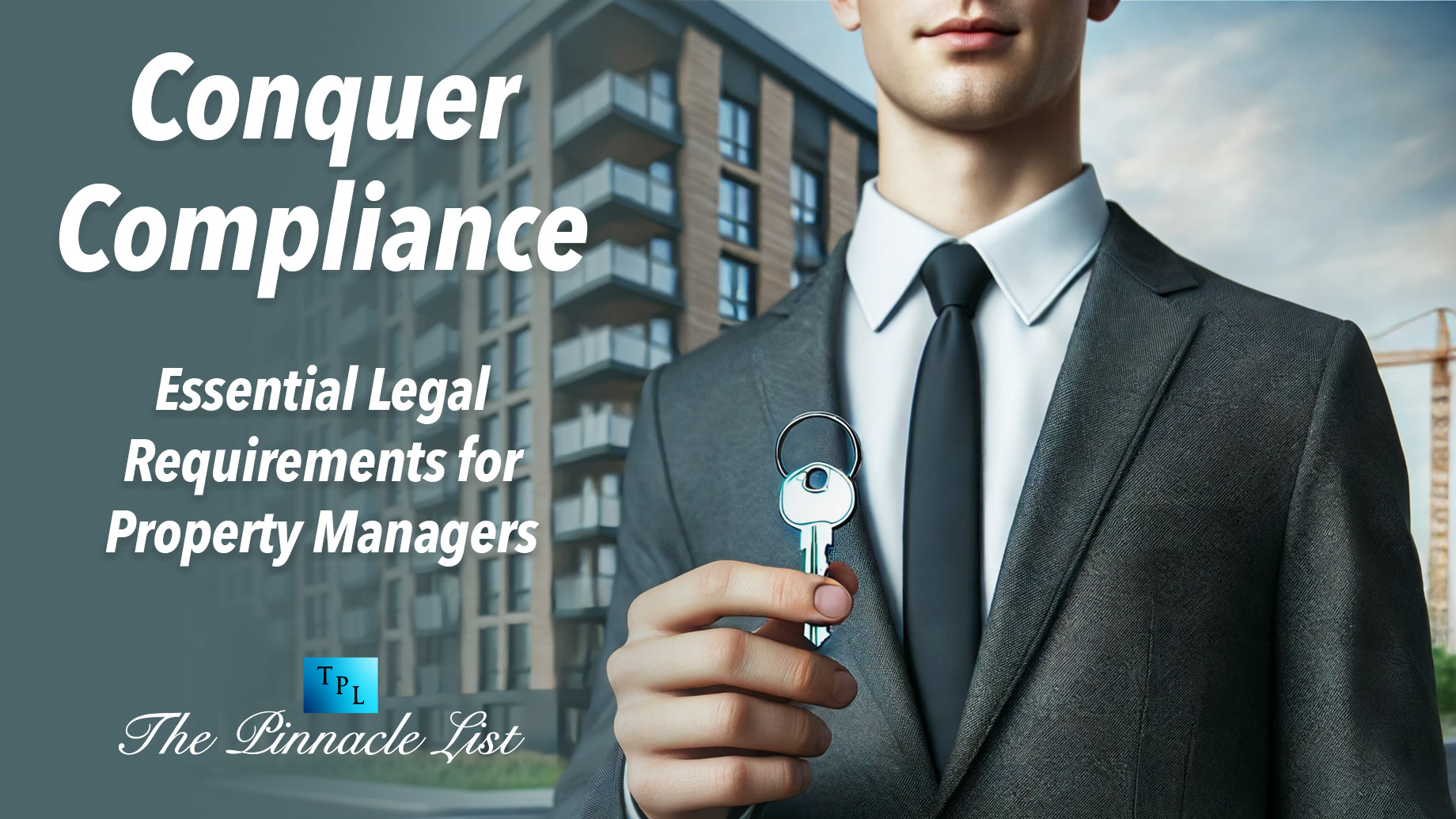
Overseeing rental properties is a big job. There’s a lot to consider to make sure everything is done right and legally. Property managers look after the rental business, making sure that the properties are financially stable and are kept in good shape. Hence, they must have a clear understanding of the legal factors of property management. It helps them to run the business smoothly without any hiccups. For property managers, compliance isn’t just about following rules—it’s about creating a safe, fair, and legally sound environment for tenants and owners alike. In this article, we’ll explore the essential legal requirements that every property manager should know to conquer compliance.
Navigating the Legal Maze of Property Management
At the core of property management, lies an intricate web of complex laws and regulations that real estate managers need to comply with. As a manager, you need to be well-versed with every nitty-gritty of legal requirements, from rent to own agreements, that govern the rental property business operations. So, to help you get started, here’s a straightforward guide to help you navigate the legal landscape easily.
1. Have a Good Understand of Fair Housing Laws
The role of a property manager is to hold a very serious and fragile responsibility not only towards their renters. Remember, every tenant who chooses your rental unit expects you to be friendly and quick to respond to whatever they need. Hence, as a property manager, you must have a thorough and good understanding of the fair housing laws to ensure you restrict discrimination while renting out properties. You also have to teach your team to do the same. Everyone who wants to rent from you or who already rents from you should get the same level of respect and service, irrespective of their background.
2. Know Lease Agreements
Lease agreements contribute to the provision of reliable legal documents for both property managers and renters. However, property managers need to be careful to make sure everything is fair and follows the law. It’s a good idea to work with a lawyer when making these rules to make sure they’re right and fair for everyone. Make sure the lease agreements state crucial details like payment due dates, rent amount, maintenance responsibilities, and rules about pets clearly. It’s super important that these rules don’t break any local laws and that everyone renting the place understands them well.
3. Stay on Top of Maintenance
Property managers are highly responsible for keeping the rental unit in tip-top condition to satisfy the legal requirements. When a home is well-cared for, it keeps the renters happier and can see that the rent they pay is worth it. Therefore, property managers must schedule regular checks and prompt repairs to meet safety regulations and codes. Relying on property maintenance management software will allow real estate managers to get quick updates from the renters regarding any maintenance issues. This will help managers take immediate action and resolve the maintenance problem before it becomes serious.
4. Manage Security Deposits Correctly
Security deposits are not only a source of commitment from the renters’ end to take care of the property well, but also a symbol of trust. However, property managers, too, need to establish their respect for the tenants’ trust by managing the security deposits safely without misusing them. Sometimes, if security deposits aren’t handled properly, problems can come up. Therefore, property managers should strictly follow the state laws and rules on how much can be collected, how it should be stored, and when it must be returned. Writing down everything about the security deposits can help a lot. It means that later on, if there’s any confusion or disagreement, there’s a clear record that can help sort things out. This helps everyone to stay on the same page and keeps things fair and smooth.
5. Respect Privacy and Access Rights
Every tenant has the right to privacy in their rental unit. As a property manager, you need to be mindful of this and let your renters have their own space. If, in any scenario, you need to enter your tenant’s rental unit, it is important to provide them with a proper, well-written notice beforehand. Taking permission, except in emergencies, is crucial to show your renters that you respect their privacy. By doing this, you help build a trusting relationship between you and the people living in your properties.
6. Maintain Proper Financial Records:
Maintaining an accurate financial record is not just for accountants. Property managers should keep proper track of all the business funds. Monitoring all income and expenses made through the business capital minutely will help managers create a detailed financial record, justifying all the expenditures made. This includes rent payments, maintenance costs, and any other charges. Moreover, accurate records are essential for tax purposes and in case of legal issues.
Final Thoughts
Compliance in the rental property business is more than a legal commitment that property managers need to abide by. It’s also a smart move that helps property managers make sure the homes are safe, and everyone is treated fairly. By paying attention to these six important points, property managers can make sure that the tenants are content and that all the legal rules are followed. It’s important to always be up-to-date and ready to take care of any rule-related matters. This is the best way to omit any possible legal troubles and build a good, trusting relationship with the renters.